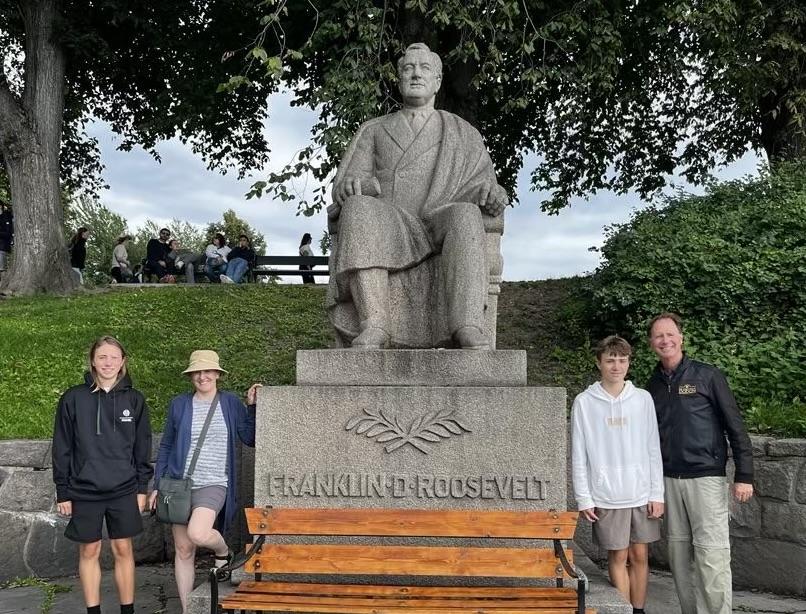When a county executive goes on vacation out of state or out of country - I’m in Norway - he or she signs over the powers of the office to the Chief Administrative Officer.
When a sea level surge of 4.54 feet came up the Bay on Friday morning to our 530 miles of coast, I knew that the county was in good hands. Our fire department, police department, public works, and office of emergency management are always on duty, well led, and responsive to calls. CAO Christine Anderson oversees the work of those agencies even when I am present, so stepping in to make decisions about resource allocations and acting as spokesperson was an easy assignment. She never contacted me, and I never told her that I was reading every email and news account that I could find.
Now let’s get back to work on the Anne Arundel and Annapolis Resiliency Authority projects to protect us from future events of equal or greater magnitude.
I’m a curious traveler. I love seeing the natural beauty of places, learning about the history, and especially trying to understand what makes people good or bad at governing, good or bad at building and maintaining public institutions that deliver for their neighbors.
In global rankings, Norway sits 7th in happiness, 2nd in trust in government, and 1st in the Economist Group’s World Democracy Index.
Their center-left Labor Party has dominated for most of the post-World War II years, but center-right coalitions have had their moments as well.
My questioning of our hosts - Erin’s high school exchange student guest Mari and her partner Petter - and my Googling have led me to the conclusion that some things are almost universal sources of national pride. They include a national system of universal health care as a right, outstanding schools and universities that are close to free for everyone, almost 100% renewable electricity production (hydroelectric), and a national forest conservation program.
When oil was discovered near the end of the 20th century, the people of Norway not only insisted that it be managed as a public resource, but also that revenues be used to create a national wealth fund for pensions and major public investments. They invested as a country, rather than cashing in with tax cuts.
In recent years national and local politicians have taken on tough issues and made progress. Through a national, local, and private sector effort that included housing stock and social services, they reduced their homeless population from 6,259 to 3,909 in the four years between 2012 and 2016. By 2020 it was 3,325. And they reduced automobile traffic in Oslo by 25%!
It was on our first day visiting museums and public spaces that the length and brutality of the Nazi occupation hit me. We talk about intergenerational trauma among peoples around the world, and I began to wonder about the impacts of 400,000 German Nazi soldiers taking over the public institutions in a country of 3 million, destroying the Norwegian economy, and burning down whole communities as they departed. It was a five year occupation that many thought would never end.
Maybe the Norwegian people’s commitment to one another’s social welfare, and enthusiastic participation in their democracy took its strength from the trauma of outside occupation. They teach their history, and they remember. Ninety percent of Norwegians today speak fluent English, because they learn it in school.
When we came across this statue of President Franklin D. Roosevelt prominently placed on the fortress hillside looking down upon the Oslo harbor, I was filled with a sense of national pride and gratitude for my father’s service as a combat soldier in that war, and as one of many who worked on the Marshall Plan to rebuild Europe.
And then there were the Vikings, basically raiders of lands across the seas, but also part of the country’s history. So we jumped at the chance to attend a Viking festival. Mari pronounces it Wiking. I told her that makes them sound weak, but that I looked forward to meeting some Wery Wicious Wikings at the festival.
The festival was fun, but the Wikings were no more wicious than the dressed-up warriors at our Renaissance Festival.
Until next week…

